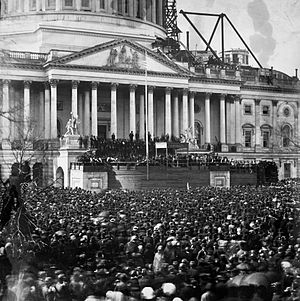Schenck V. United States (1919)
- Schenck was charged in 1919 with an intended plan to act against the Espionage Act made two years prior
- He made attempts to encourage insubordination within the military in order to block the recruitment going on during that time period
- The vote was unanimous within the Supreme Court, which decided that only Congress has the right to limit rights stated in the First Amendment during times of war (such as the freedom of speech, which was violated by Schneck)
- The "clear and present danger" mentioned by Justice Oliver Wendell Holmes Jr. is the desire of people to violate rights guaranteed to all by the Constitution (in this case, the First Amendment), bringing an unwelcome evil into the country
- Holmes explains how cases like these vary based on the circumstances at the time; for example, during wartime, offenses that would otherwise be overlooked will not be left unpunished









